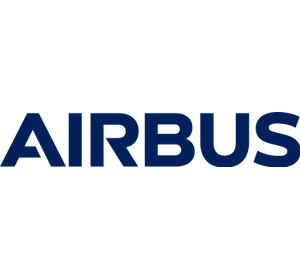$AIR $BA $USD
#Airbus #Aviation #TradeWar #Tariffs #Trump #SupplyChain #EconomicPolicy #Manufacturing #Airlines #StockMarket #GlobalTrade #Investing
Airbus CEO Guillaume Faury has indicated that the company may accelerate deliveries to non-U.S. customers should potential tariffs imposed by former President Donald Trump disrupt trade with the United States. This comes amid lingering concerns that a second Trump administration could implement protectionist measures impacting the global aviation industry. Airbus, a major competitor to Boeing, has expanded its production footprint in the U.S. in recent years, primarily to mitigate trade risks and strengthen its presence in a lucrative market. However, if tariffs were to be imposed on European-produced aircraft, the company could prioritize deliveries to regions less affected by such restrictions, shifting supply chain dynamics and potentially altering the competitive landscape between Airbus and American manufacturers like Boeing.
The aerospace sector is highly sensitive to trade policies, as tariffs can increase costs for manufacturers and customers, including airlines reliant on fleet modernization. Airbus has spent years developing a diversified global supply chain to manage geopolitical risks, including trade tensions between the European Union and the United States. Any barriers to transatlantic trade could disrupt planned deliveries, impacting not just Airbus and its airline customers but also suppliers that depend on a smooth flow of international manufacturing. Financial markets closely monitor such developments since tariff uncertainties can lead to volatility in Airbus shares ($AIR), Boeing ($BA), and the broader industrial sector, influencing investment strategies as traders assess potential risks to revenue and profitability.
In response to possible tariff implementations, Airbus has also increased its production capacity within the United States, with facilities in Mobile, Alabama, manufacturing aircraft tailored for U.S. airlines. This strategy aligns with broader de-risking efforts by multinational corporations wary of protectionist policies. Nevertheless, Airbus’ ability to sustain smooth production and deliveries hinges on maintaining favorable trade relations. If tariffs were enacted, U.S. carriers that rely on Airbus jets might face higher costs or delivery delays, forcing some to reconsider fleet expansion plans in favor of Boeing alternatives. This could bolster Boeing’s position in domestic aircraft sales, though Boeing itself is grappling with its challenges, including supply chain issues and aircraft certification delays.
Should trade tensions escalate, potential market reactions could include increased volatility in the aerospace sector, with investors pricing in uncertainties related to tariffs and supply chain disruptions. The impact of such a policy shift extends beyond Airbus and Boeing, affecting airline stock performance, currency fluctuations (particularly the U.S. dollar $USD and the euro), and global trade sentiment. As policymakers negotiate over trade agreements, industries reliant on smooth international commerce—such as aviation—must remain agile in navigating geopolitical uncertainties. With Airbus indicating a willingness to adjust delivery schedules, stakeholders in the aviation and financial sectors will closely watch developments in U.S.-EU trade policies for potential shifts in strategy and investment opportunities.











Comments are closed.